RIO DE JANEIRO, BRAZIL – For 15 days, between the end of December and the start of the new year, there were ten violations in Venezuela of freedom of expression recorded by the NGO Espacio Público.
But in a single day the Venezuelan regime attempted to prevent the publication of Panorama daily newspaper, which was closed down for five days, VPItv channel’s equipment was seized and the website of the Tal Cual newspaper was under attack on the Internet for several hours, while at the same time brutal attacks from the official media were directed primarily against Efecto Cocuyo, and later against the Fe y Alegría radio station network, as well as the National Union of Press Workers.
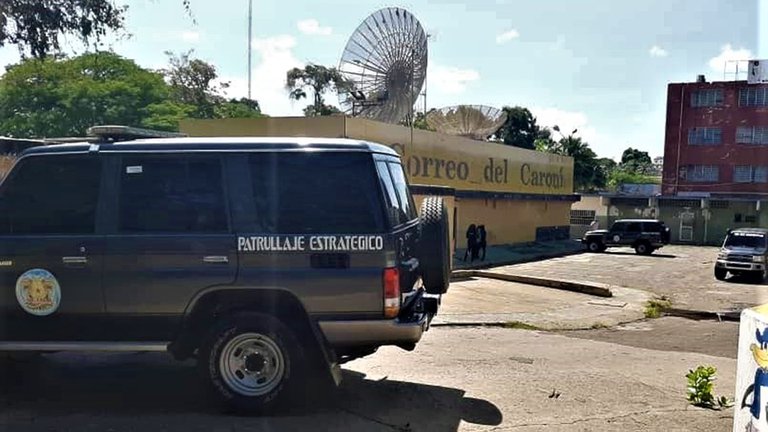
There was undoubtedly a communication strategy that was initially intended to expose journalist Luz Mely Reyes, one of Efecto Cocuyo’s co-founders in 2015 along with journalists Josefina Ruggiero and Laura Weffer.
On January 6th, 2021, the Globovisión channel’s website reported that Efecto Cocuyo received US$1 million from the United Kingdom and featured journalist Reyes in a large photo. On January 7th, the Ministry of Communication of the Venezuelan regime website published a large headline that Efecto Cocuyo had been contracted as “mercenaries of journalism”, mentioning other media outlets such as Fe y Alegría, as well as the Press Union, quoting the Globovisión website, a channel linked to the Government.
On January 8th, El Universal newspaper, one of the Chavista-affiliated media, published the same information with a photo of Reyes; in this case it made reference to the fact that the information was taken from the “contexto diario” website, which in turn said that it had been taken from the “dailymaverick”, showing that the £750,000 was to influence the media agenda in the country, not that Efecto Cocuyo or Luz Mely Reyes were granted US$1 million.
The Cuban news agency Prensa Latina joined the list; “The United Kingdom government illegally financed the Cocuyo Effect website to undermine and destabilize Venezuela, as disclosed today by the national press.” The whole range of websites and printed propaganda media of the Venezuelan regime, such as Ciudad Caracas, adopted the same line.
From December 14th, 2020 to January 3rd, 2021, during 15 days, according to estimates made by the NGO Espacio Público, violations to freedom of expression in Venezuela reported two verbal harassments, one administrative restriction, one case of censorship, four cases of intimidation, one judicial harassment and one attack. In total, there were five cases and ten violations of freedom of expression.
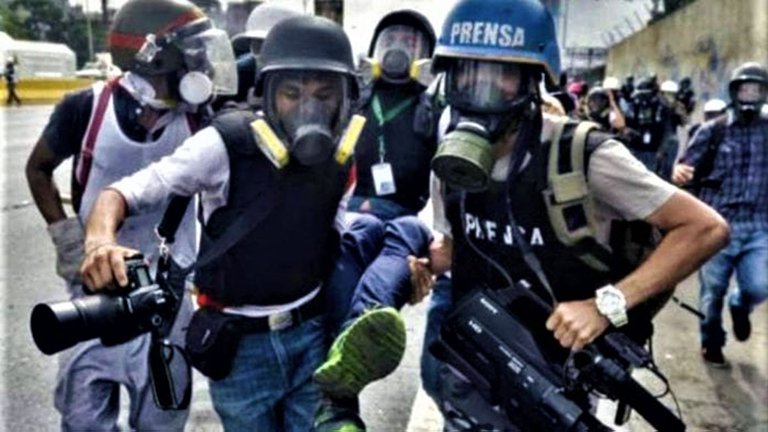
This figure is compounded by a temporary shutdown of the Panorama newspaper, the raid and confiscation of equipment from VPITV, and the cyber attack on the Tal Cual media outlet. Journalist Antonieta La Roca published a photo which she explained was taken in the middle of the raid: “All of us united, in support, with much pain, yes, but determined to go on. It was the moment when we all stepped out to prevent the GNP officials from continuing to search the bags of our colleagues,” she said.
A dark outlook looms over what seems to be the new strategy of the Nicolás Maduro government against the media and journalists.
January to August 2020
A report by the organization Espacio Público reflected that, between January and August last year, 295 cases and a total of 747 denunciations of violations to freedom of expression in Venezuela were recorded, pointing to a decrease of 20% and 5% compared to the same period in 2019.
In the first month of 2020 alone, over one hundred violations of freedom of expression were recorded. A good part of these cases occurred in the vicinity of the Federal Legislative Palace, in downtown Caracas, and were executed by state security forces, as well as by armed civilians, who acted repeatedly in coordination with the police.
The majority of the cases were recorded as of March, in connection with the State of Alarm and the quarantine decree; 63 cases were recorded in March alone.
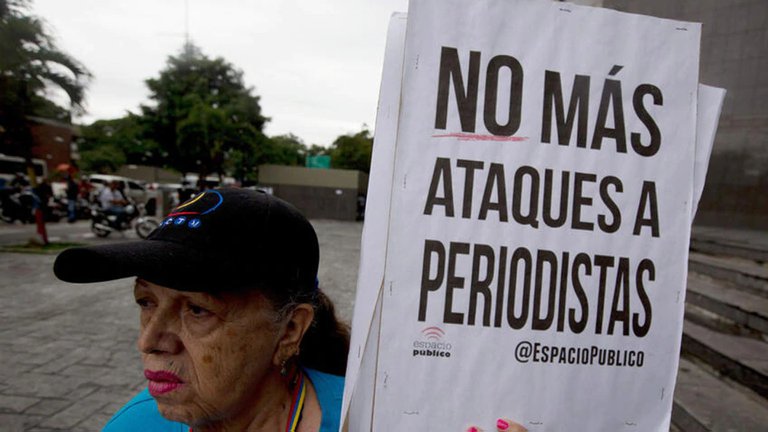
During the first two quarters of 2020, 110 arrests were recorded, 18% more than in the same period in 2019; 28% were journalists. Of the total number of arrests in that period, 95 occurred between March and August, “which shows that during quarantine, attacks on freedom of expression intensified. Likewise, 59 detentions are directly linked to the coverage or disclosure of information directly related to Covid-19 in Venezuela.”
Among these detentions, one of the most outstanding occurred on July 13th, when Cicpc officials raided the residence of the director of Punto de Corte news website, Nicmer Evans, for whom they had an arrest warrant. He was kept in the basement of the General Direction of Military Counterintelligence (Dgcim); he was released in early September as a result of a “presidential pardon”.
Between January and August 2020, 11 radio stations were forced to shut down nationwide, most of them during irregular procedures conducted by the National Telecommunications Commission (CONATEL) along with several state security forces.
On May 15th, CONATEL ordered the closure of the Rumbera 106.9 FM radio station in Valles del Tuy, Miranda State. “José Lara, CONATEL’s radio broadcasting manager, led a visit to the radio station with the purpose of delivering two notices; one signed by Jorge Rodríguez, then Minister for Communication and Information, and the other by Jorge Elieser Márquez, CONATEL’s general director, announcing the suspension of the concession.”
On July 31st, CONATEL ordered the closure of Pura Candela 93.3 FM radio station located in Carúpano, Sucre State; more than 200 members of the Bolivarian National Guard (GNB) executed the order. ‘This station is closed by order of CONATEL and by order of the state governor,’ was heard before the microphones were turned off. “CONATEL alleged that the shutdown was due to a “violation of the Telecommunications norms code”, as pointed out by journalist Lovelia Pérez in an interview with Espacio Público”.
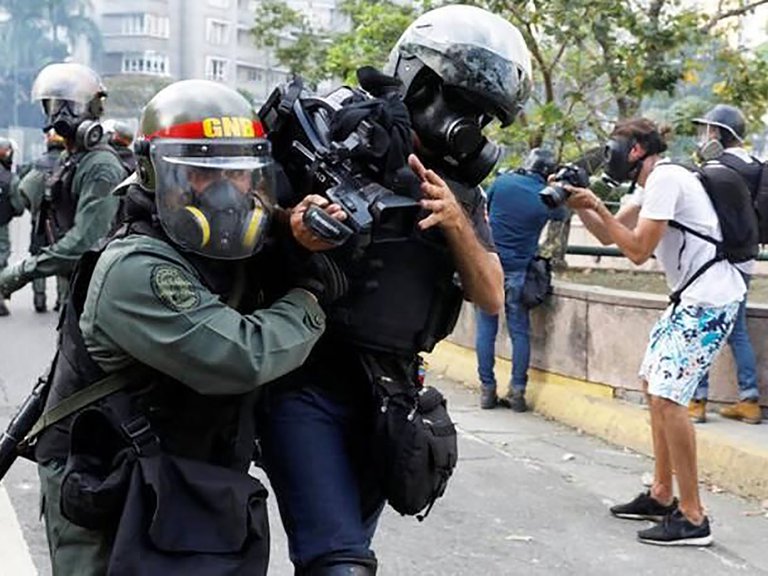
In those first eight months in 2020, “three deaths of press workers were recorded, grouped in two cases; both of which occurred under strange circumstances. The first was on August 18th in Güiria, Sucre State, when José Carmelo Bislick, professor, broadcaster and leader of the United Socialist Party of Venezuela (PSUV) was found dead”.
The other case occurred on August 21st, when officials of the Special Action Forces (FAES) stormed into Guacamaya TV, Zulia state, “assassinating popular communicators Andrés Eloy Nieves Zacarías and Victor Torres, son of the media outlet’s director.”
The Espacio Público report adds that “on May 21st, Marialejandra Meléndez, a journalist from Diario Primicia website, was detained by security forces when she tried to conduct interviews at the Raúl Leoni Hospital located in San Félix, Bolivar state”; they demanded that she hand over her phone and delete the photographs taken, actions which the reporter refused to comply with.
On June 5th, 2020, the press team of Venezolanos por la Información (VPITV) website was detained by the Bolivarian National Guard (GNB), while they were conducting interviews at the PDV service station in Chuao, Caracas. Luis Patiño, Jhonatan Bello, Dangert Zorrilla, and Oscar Avilez were approached by the officials after they had collected statements from people queuing for gas; the VPI team was stripped of their identity documents and detained for over an hour, with the threat that Dgcim officials would come and take them to the headquarters in Boleíta.
The war continues unabated
La Prensa daily newspaper, in Lara state, discontinued its publication due to a shortage of gasoline. The website of the regional newspaper Última Hora, in the state of Portuguesa, was taken offline as a result of a measure taken by CONATEL.
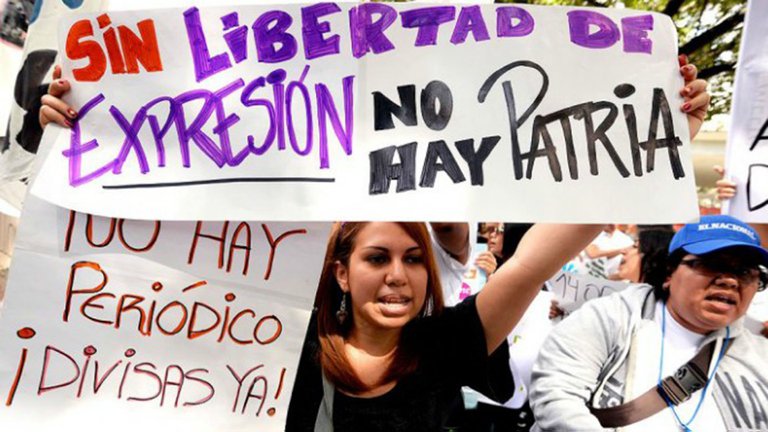
The five locations with the largest number of violations of freedom of expression are the capital district and the states of Lara, Vargas, Zulia and Mérida. “The number of cases in these regions is mainly linked to situations reported in service stations, attacks on the press during journalistic coverage, as well as limitations and arrests during citizen protests demanding improved public services”.
For the press that is denied paper to print, the blocking of news websites, among them Infobae, channels such as CNN or NTN24, there are hundreds of programs or stations, as occurred in November 2020 with Rumbera 94.7 FM in San Carlos, where the equipment was confiscated, according to the National Association of Journalists.
Furthermore, there are cases of journalists imprisoned because of their work duties, such as Eduardo Galindo, a journalist from the state of Apure, who was detained by the National Guard’s CONAS in April 2020 and held in prison for three weeks, after which he was released subject to presentation measures and his freedom to report was restricted.
Journalist Elides Rojas was detained by the DGCIM on December 21st, 2019, accused of instigating hatred; upon his release he was forbidden to leave the country.

